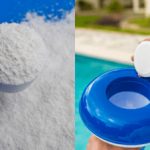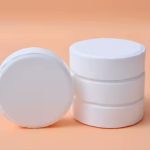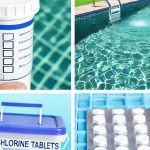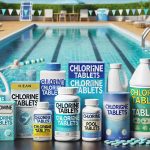When it comes to maintaining a clean and safe environment in your factory, particularly if you have large water systems or pools, choosing the best chlorine tablets is crucial. Chlorine tablets are an effective and efficient way to disinfect water, keeping it free from harmful bacteria, viruses, and algae. However, with so many options on the market, selecting the right chlorine tablets can be a daunting task. This guide will help you understand what to look for when choosing the best chlorine tablets for your factory, ensuring that you make an informed decision that meets your specific needs.
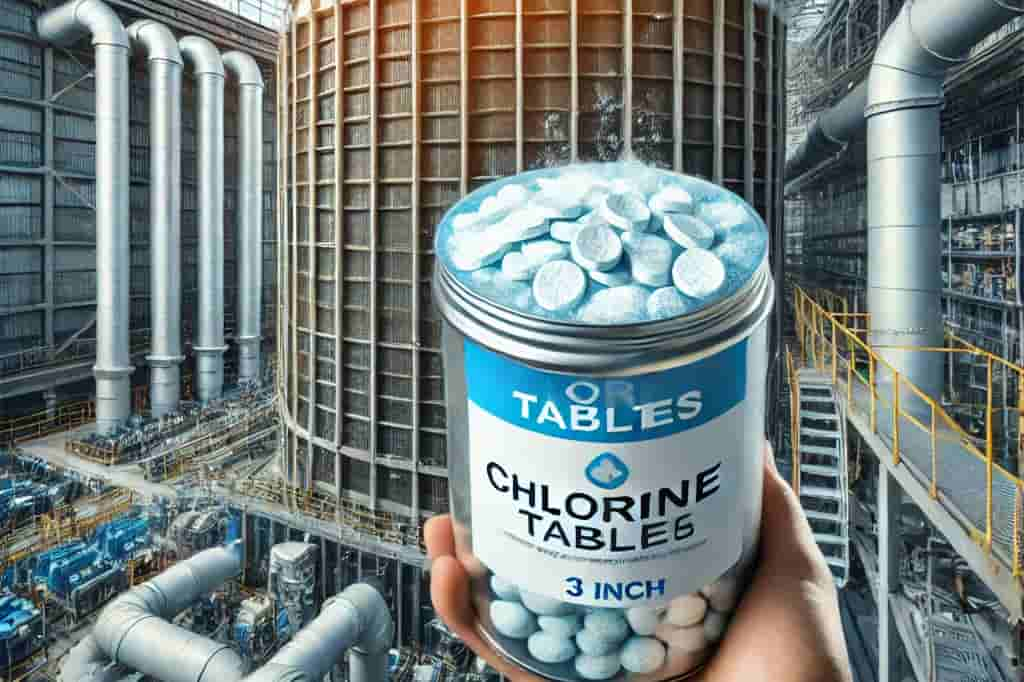
Why Chlorine Tablets Are Essential for Industrial Use
In an industrial setting, water quality is paramount. Whether you’re treating a cooling tower, a large-scale water system, or an on-site swimming pool, maintaining proper chlorine levels is essential to ensure safety and compliance with health regulations. Chlorine tablets are favored in such settings because they are easy to handle, store, and apply, offering a consistent release of chlorine over time.
Factors to Consider When Choosing the Best Chlorine Tablets
When selecting the best chlorine tablets for your factory, several factors should be taken into account:
1. Tablet Size
Chlorine tablets come in various sizes, with 3 inch chlorine tablets being one of the most commonly used sizes in large-scale operations. The size of the tablet is important because it affects the rate at which the chlorine is released into the water. 3 inch chlorine tablets are ideal for large volumes of water as they dissolve slowly, providing a steady supply of chlorine over an extended period. This makes them perfect for maintaining consistent chlorine levels in industrial settings.
If your factory has smaller water systems or requires more frequent adjustments in chlorine levels, you might consider smaller tablets, such as 1-inch tablets. However, for most large-scale industrial applications, 3 inch chlorine tablets are generally the preferred choice.
2. Chlorine Concentration
The chlorine concentration in the tablets is another critical factor. Most chlorine tablets used in industrial settings have a concentration of around 90% available chlorine, which is effective for killing bacteria and controlling algae growth. It’s essential to choose a product with a high chlorine concentration to ensure that it effectively sanitizes the water, especially in environments where the water quality must meet stringent health and safety standards.
3. Tablet Composition
Not all chlorine tablets are created equal. The composition of the tablet can impact its effectiveness and safety. The most common type of chlorine used in tablets is trichloroisocyanuric acid (Trichlor), which is stabilized with cyanuric acid to protect the chlorine from being broken down by sunlight. This makes Trichlor tablets ideal for outdoor water systems or pools.
However, if your factory’s water systems are primarily indoors, you might not need the added stabilization, and could opt for unstabilized chlorine tablets. It’s also worth considering tablets that are specifically formulated for industrial use, as these may contain additional ingredients to enhance their performance in large-scale operations.
4. Dissolution Rate
The dissolution rate of the chlorine tablets is important because it determines how quickly the chlorine is released into the water. 3 inch chlorine tablets typically have a slow dissolution rate, which is beneficial for maintaining a consistent chlorine level over time. This is especially important in large water systems where you don’t want to constantly monitor and adjust chlorine levels. However, if your system requires a more rapid response, you may want to consider tablets with a faster dissolution rate.
5. Packaging and Storage
In an industrial setting, the way chlorine tablets are packaged and stored can significantly impact their usability and lifespan. Look for tablets that are packaged in airtight, moisture-resistant containers to prevent them from degrading before use. Proper storage is also critical; chlorine tablets should be kept in a cool, dry place, away from direct sunlight and other chemicals. Consider the volume of chlorine tablets your factory uses and choose packaging that suits your storage capacity.
6. Cost-Effectiveness
While it might be tempting to choose the cheapest option, it’s important to consider the long-term cost-effectiveness of the chlorine tablets. Tablets that dissolve too quickly or have a low chlorine concentration may require more frequent replacement, leading to higher costs over time. On the other hand, investing in high-quality, slow-dissolving tablets may provide better value in the long run, as they require less frequent application and ensure consistent water quality.
7. Compliance with Regulations
Ensure that the chlorine tablets you choose comply with local and international water treatment regulations. This is particularly important in industrial settings where non-compliance can lead to hefty fines and pose a risk to public health. Always check that the product is certified by relevant authorities and meets the standards required for your specific application.
Conclusion
Choosing the best chlorine tablets for your factory involves considering several factors, including tablet size, chlorine concentration, composition, dissolution rate, packaging, cost-effectiveness, and regulatory compliance. 3 inch chlorine tablets are often the preferred choice for large-scale operations due to their slow dissolution rate and high chlorine concentration, but the specific needs of your factory may dictate a different choice.
By carefully evaluating these factors and selecting a product that meets your requirements, you can ensure that your factory’s water systems remain clean, safe, and compliant with all relevant regulations. Whether you’re maintaining a cooling tower, treating wastewater, or managing an on-site pool, the right chlorine tablets will help you achieve consistent, reliable results.

